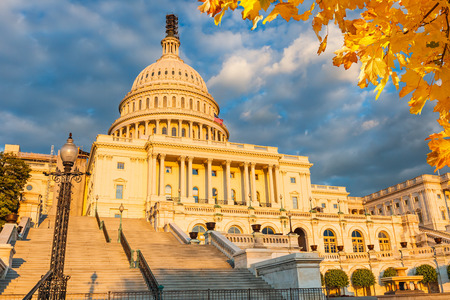While the technology continues to improve at an impressive rate, there has still been relatively little progress legislatively. Integration into our existing roadways is the biggest hurdle for autonomous vehicles, and only a handful of cities have opened their doors to the idea of this new revolution, with a select number allowing for testing on their roads, one of the most essential phases in the development of this technology.
In order that legislation can progress more swiftly and allow us to get the most out of this new technology, senators Bill Nelson, Gary Peters, and John Thune are proposing a set of guidelines that can instruct the manner of creation of legislation.
The six principles that the three senators have proposed are:
- Prioritize Safety: As with conventional vehicles, federal standards will be important to self-driving vehicle safety.
- Legislation must consider both the near-term and long-term regulatory oversight of these vehicles, recognizing that new safety standards governing these vehicles should eventually be set.
- Promote Continued Innovation and Reduce Existing Roadblocks: Currently, there is a body of regulations governing conventional vehicles, developed over decades, that does not directly address self-driving vehicles. Developing new standards takes significant time.
- Legislation must allow the life-saving safety benefits of self-driving vehicle technology to move forward as new standards development is underway.
- Legislation must find ways to preserve and improve safety while addressing incompatibility with old rules that were not written with self-driving vehicles in mind.
- Remain Tech Neutral: Self-driving vehicles are likely to take different forms, use diverse technologies, serve consumers with varying capability levels, and follow multiple business models.
- Legislation must be technology neutral and avoid favoring the business models of some developers of self-driving vehicles over others.
- Reinforce Separate Federal and State Roles: Traditionally, the federal government has regulated the vehicle itself, while states have regulated driver behavior.
- Legislation must clarify the responsibilities of federal and state regulators to protect the public and prevent conflicting laws and rules from stifling this new technology.
- Legislation must be based on the existing relationship between federal and state regulators and their current separation of authority, but make necessary targeted updates for new challenges posed by the current regulatory environment with respect to self-driving vehicles.
- Strengthen Cybersecurity: Cybersecurity should be a top priority for manufacturers of self-driving vehicles and it must be an integral feature of self-driving vehicles from the very beginning of their development.
- Legislation must address the connectivity of self-driving vehicles and potential cybersecurity vulnerabilities before they compromise safety.
- Educate the Public to Encourage Responsible Adoption of Self-Driving Vehicles: Government and industry should work together to ensure the public understands the differences between conventional and self-driving vehicles.
- Legislation must review consumer education models for self-driving vehicles and address how companies can inform the public on what self-driving vehicles can and cannot do based on their level of automation and their individual capabilities.
References: Senator Gary Peters Futurism


.jpg)
.jpg)
.jpg)

.jpg)




.jpg)